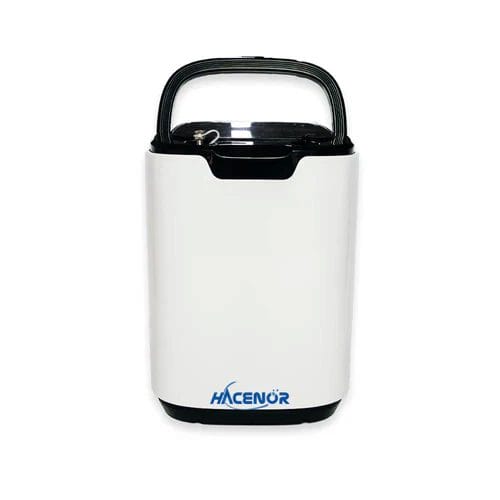[Last updated November 26, 2024]

Tax season can be a stressful time of year, especially for caregivers. On top of providing much-needed care for a family member or loved one, you’ll have to coordinate the filing of your taxes and potentially your loved one’s as well. This is a heavy lift for most people since tax filing can be stressful and confusing. To help alleviate some of this tax-related stress, we’ve put together a guide on how caregivers can prepare for tax season.
Determine if your loved one qualifies as a dependent
Those who can claim their older parent or loved one as a dependent are typically eligible for additional tax breaks. Not everyone can claim their elderly loved ones as dependents on their tax returns, though. For a loved one to be eligible to be claimed as a dependent, they must be related to you or live with you for the entire year, they must have earned less than $5,050 in taxable income in 2024, and you must have paid more than half of their support for the year, among other requirements.
The Internal Revenue Service has an FAQ page that outlines criteria for the caregiver to claim that person as a dependent. Some common topics the FAQ page addresses are:
- How a caregiver of an aging parent can file as head of household.
- If the money that an aging parent gives to a caregiver to cover some household expenses is taxable to the caregiver.
- How a caregiver of an aging parent can deduct the parent’s medical expenses on their tax return.
As you prepare for tax season each year, be sure to check back to ensure the criteria haven’t changed.
Determine if your parent has to file taxes
Unfortunately, not everything is cut and dried with the IRS, so some care recipients may still have to file taxes while in retirement. Typically, those who receive income from a traditional IRA, 401(k), rental property, or other business or investment will still have to file a return, provided they make above a certain amount. Some seniors must pay federal income taxes on their Social Security benefits, depending on their income and filing status. When preparing for tax season, It’s important to learn whether your parent has to file taxes. If they are required to file but don’t, they could face serious consequences from the IRS.
The IRS has an interactive tool on its website that helps you determine whether you and your care recipient need to file. If a tax professional files your taxes, you should run it by them as well to get a second opinion.
Find out if tax code changes affect you
The tax code is a seemingly never-ending document that is constantly changing. For those who haven’t kept up with the latest changes, here are some of the most prominent ones that may affect you or your loved ones:
- 1099-K changes are taking effect for 2024. Third-party settlement networks, like Venmo, PayPal, Square, eBay, and more, are required to issue 1099-K forms for payees who are paid over $5,000 in a year for goods and services. This threshold has been drastically decreased from previous years.
- As mentioned above, the income limit of dependents has been increased to $5,050 for tax year 2024.
- Tax-deductible limits for long-term care insurance premiums have changed as follows:
| Age range | 2023 limit | 2024 limit |
| 71 and over | $5,960 | $5,880 |
| 61-70 | $4,770 | $4,710 |
| 51-60 | $1,790 | $1,760 |
| 41-50 | $890 | $880 |
| Under 40 | $480 | $470 |
Gather all the important tax documents as you prepare for tax season
Preparing for tax season can present quite a few challenges. One of the toughest aspects is finding and preparing the right documentation. If your parent needs to file taxes, you’ll need proper documentation for both of you. Below is a short list of documents you’ll need to gather for both you and your loved one (if your parent needs to file taxes):
- W-2s.
- 1099s.
- Investment profit/loss statements.
- Receipts for tax-deductible expenses and donations.
Be sure to consult with a tax professional to ensure you have all the proper documentation in order before filing your taxes. There might be other forms you need to provide, depending on the different types of income and accounts you have.
Often, these documents are easy to find since most banks and employers offer them through online portals. It’s important to remember that not all these forms will be available as soon as January rolls around. You may have to check periodically and wait for forms like W-2s and 1099s to become available. Usually, it takes a few weeks for companies to generate statements like this, so make sure you’re patient, and remember to check back for them.
See if you qualify for caregiver deductions
To help you stay on top of caregiver-related tax deductions, we’ve compiled a list of caregiver expenses that can be tax deductible. Eligible deductible expenses may include assisted living, nursing home, and home health aide costs when incurred for medical reasons; medical and therapeutic services; prescribed medication and medical equipment, including hearing aids and walkers; and transportation for medical appointments.
You can also check with a trusted tax professional or consult the IRS’s information on its website.
Hire a tax professional
While you can file your own taxes, it might be a challenge if you have complex issues like being a caregiver and potentially having an adult dependent. Filing your own taxes can take quite a bit of time, and doing so requires great attention to detail. Sometimes tax matters are best left to the professionals. Enlisting the services of a certified public accountant can give you peace of mind that your taxes have been filed accurately.
Although hiring a CPA may cost more than tax-filing software, it can be an excellent investment. A CPA can find tax deductions and credits you didn’t realize you were eligible for. They can also help you with tax planning throughout the year. Having a solid, year-round tax strategy can help you save even more money on your tax bill.
Preparing for tax season can ease your stress
Although you file your taxes every year, it might feel like you’re learning to prepare for tax season all over again each time. When you are a caregiver for a senior loved one, the job becomes more complex. Take time now to determine whether your loved one has to file, get the correct paperwork in order, learn what deductions you can take, and get in touch with a trusted tax professional so tax season runs more smoothly as the April 15 deadline approaches.








